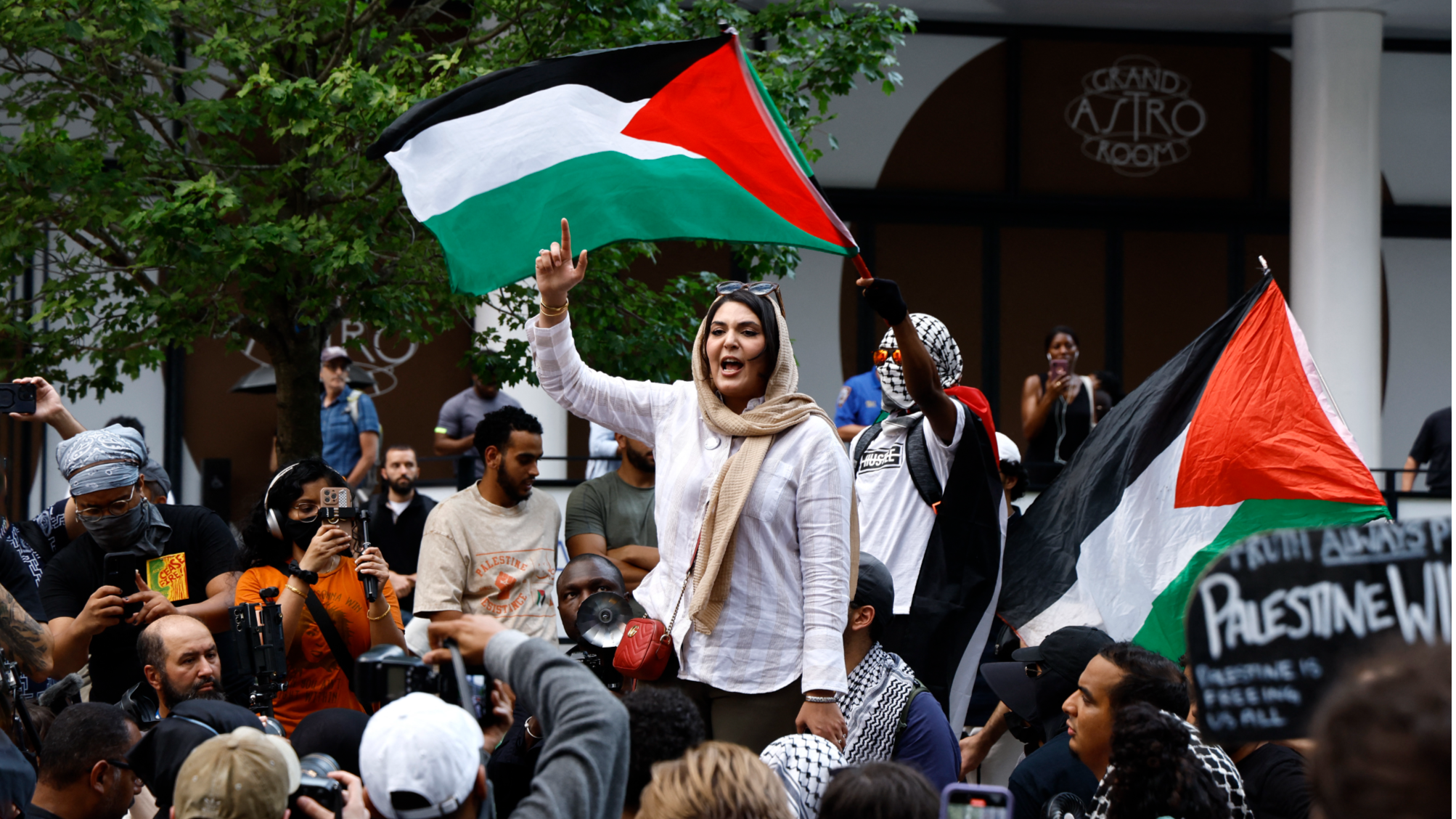
Arab nations have slammed Israel’s parliament for approving a resolution that rejects the establishment of Palestinian statehood, and accused Tel Aviv of legitimizing “apartheid” and showing lack of desire for peace and stability in region.
Arab League Secretary-General Ahmed Aboul Gheit condemned the move by the Knesset, the Israeli parliament, stressing that the invalid justifications for passage of the resolution “only expose the true intentions of the Israeli occupation” toward the Palestinian people and their rights.
He said the rejection of Palestinian statehood aimed to “legitimize the occupation apartheid and normalize the desecration of holy sites, which undermine the two-state solution and rejects the peace that the international community seeks”, Emirates News Agency reported.
READ MORE: Spain, Ireland and Norway recognize Palestinian statehood
On July 18, the Knesset voted overwhelmingly against Palestine state’s establishment even as part of a negotiated settlement with Israel. The vote happened just as Israeli Prime Minister Benjamin Netanyahu was preparing for a trip to the United States where he is expected to meet President Joe Biden and speak before the US Congress.
The resolution stated that the existence of a Palestinian state would pose an “existential threat” to the State of Israel and its citizens, and will further extend the Israel-Palestinian Arab conflict and be a source of destabilization for the entire region.
The motion concluded that supporting Palestinian statehood at this time “would reward terrorism and serve to encourage Hamas and its supporters” and that “Israel’s enemies” will interpret it as the victorious outcome of a massacre perpetrated on Oct 7 last year and a precursor to the conquest by jihadist Islamism of the entire Middle East.
The resolution was co-sponsored by parties in Netanyahu’s coalition with right-wing parties from the opposition, as well as Benny Gantz’s centrist National Unity party, the Times of Israel reported.
It came during a delicate time as Israel and Hamas, through Egyptian, Qatari and US mediators, have for months been trying to work out a cease-fire deal.
Jamal Rushdi, spokesman of the Arab League's Secretary-General, noted that Israel’s announcement also coincided with the storming of the courtyards of Al-Aqsa Mosque by Israeli National Security Minister Itamar Ben-Gvir.
Rasha Al Joundy, a senior researcher at the Dubai Public Policy Research Centre, said the decision of Israel’s parliament would further cause complications between Israel and its Arab neighbors, given that the political solution to end the Israel-Palestine conflict is having two states — one for the Israelis and one for Palestinians.
“This decision from the Knesset will be a recruiting tool for the extremist militias and could shake the security situation in the region and possibly around the world,” Al Joundy told China Daily.
The Arab League has been advocating the two-state solution as the key to settling the Palestinian-Israeli conflict and ending Israel’s occupation.
In a statement on July 18, Jasem Mohamed Albudaiwi, secretary general of the Gulf Cooperation Council (GCC), said the Israeli parliament’s decision was “a clear violation of international and United Nations resolutions related to the Palestinian cause”.
Further, it “confirms their desire and move forward to fueling tension and threaten security and stability in the region and the world”.
Albudaiwi called on the international community to reject and denounce this “unjust decision, which expresses the intentions of the Israeli occupation forces to expand the circle of conflict and their lack of desire for stability and peace in the region”.
He reiterated the stance of the GCC countries towards the Palestinian cause, supporting the establishment of an independent Palestinian state within the borders of June 4, 1967, with East Jerusalem as its capital, including the support for Palestinians and their rights.
Saudi Arabia, meanwhile, denounced the Israeli authorities’ storming of the Al-Aqsa Mosque, saying these “hostile practices” toward Islamic holy sites and international resolutions demonstrate Israel’s “aggressive approach”, and stressed that these actions “prevent any progress aimed at sparing the blood of innocent people and achieving a just and comprehensive peace”.
On July 17, Israel’s far-right minister Ben-Gvir forced his way into the Al-Aqsa Mosque, the holiest Muslim site in Jerusalem, in a provocative move.
Jordan's foreign ministry spokesperson Sufian Qudah said the decisions and actions of Israel “do not change the reality of its occupation of Palestinian territories”.
READ MORE: UN experts urge all countries to recognize Palestinian state
Israel's denial of Palestinians’ right to their independent and sovereign state does not bring security and peace to the region, he said, calling on the international community to condemn Israel’s actions.
The Organization of Islamic Cooperation, in a statement, also condemned the Israeli Knesset’s rejection of Palestine statehood, as well as the “intrusion” of Ben-Gvir “into the courtyards of the blessed Al-Aqsa Mosque under the protection of Israeli occupation forces”.
It rejected “occupation policies aimed at altering the geographic and demographic reality in Al-Quds (Jerusalem)” and any efforts to “undermine the historical and legal status” of the Al-Aqsa Mosque.
Contact the writer at jan@chinadailyapac.com


